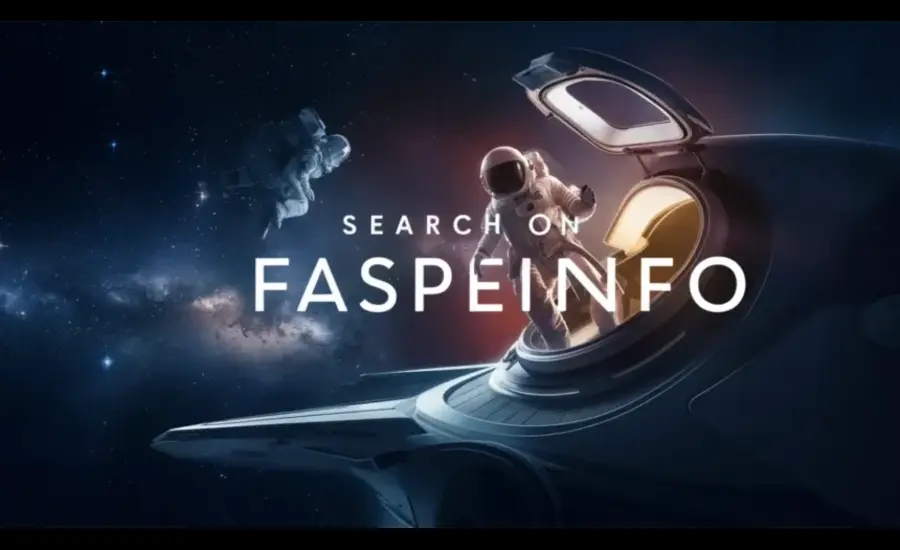Search on Faspeinfo: A Modern Search Engine for Information
In the ever-evolving landscape of digital information, search engines have become indispensable tools that shape the way we interact with the vast expanse of data available on the internet. As we navigate through an age characterized by information overload and the constant quest for efficiency, Faspeinfo emerges as a modern search engine designed to meet contemporary needs. This article delves into the intricacies of Faspeinfo, exploring its unique features, the technological innovations behind it, and the broader implications of its integration into our daily information-seeking habits.
The Genesis of Faspeinfo: An Overview
Faspeinfo, a name that suggests both speed and precision, was conceived with a singular vision: to redefine how users access and interact with information online. Unlike traditional search engines that often rely on dated algorithms or superficial indexing methods, Faspeinfo leverages cutting-edge technology to provide a more nuanced and efficient search experience. Its development is rooted in addressing the specific challenges faced by modern users, who demand not only speed but also relevance and accuracy in their search results.
At its core, Faspeinfo integrates advanced artificial intelligence (AI) and machine learning (ML) technologies to enhance its search capabilities. This technological backbone enables the search engine to understand user intent with unprecedented accuracy. Rather than merely returning a list of links based on keyword matches, Faspeinfo aims to deliver results that are contextually relevant, thereby aligning more closely with what users are actually seeking. This approach signifies a shift from traditional search paradigms towards a more intuitive and responsive system.

Technological Innovations Driving Faspeinfo
Faspeinfo distinguishes itself through a suite of technological innovations that set it apart from conventional search engines. Central to its operation is an advanced AI-driven algorithm designed to parse and understand the intricacies of natural language. This allows Faspeinfo to process complex queries and deliver results that reflect a deeper understanding of context and semantics.
One of the standout features of Faspeinfo is its use of natural language processing (NLP) techniques. NLP enables the search engine to grasp the nuances of human language, including idiomatic expressions, contextual meanings, and subtle variations in phrasing. This capability is crucial for providing users with results that are not only relevant but also tailored to their specific needs. For instance, if a user searches for “best practices in data visualization,” Faspeinfo’s NLP algorithms can discern whether the user is looking for guidelines for creating visual content, tools for data analysis, or case studies demonstrating successful applications.
Another significant innovation is Faspeinfo’s real-time indexing system. Traditional search engines often rely on periodic updates to their indexes, which can result in delays in reflecting the most current information. Faspeinfo addresses this issue with a dynamic indexing approach that continuously incorporates new data and updates existing entries. This ensures that users receive the most up-to-date information, which is particularly valuable in rapidly changing fields such as technology and current events.
User Experience and Interface Design
The user experience (UX) and interface design of Faspeinfo play a critical role in its effectiveness and appeal. Recognizing that users seek efficiency and simplicity, Faspeinfo has been designed with a clean, intuitive interface that minimizes clutter and focuses on delivering relevant search results. The user interface (UI) is both aesthetically pleasing and functionally effective, featuring a streamlined search bar, well-organized result displays, and customizable settings that allow users to tailor their search experience.
One notable aspect of Faspeinfo’s interface is its adaptive search suggestions. As users begin typing their queries, the search engine provides real-time suggestions that are contextually relevant and derived from a deep analysis of both historical search patterns and current trends. This feature not only speeds up the search process but also enhances its accuracy by guiding users towards more precise and effective queries.
Additionally, Faspeinfo incorporates advanced filtering options that enable users to refine their search results based on various criteria such as date, source, and content type. This level of customization ensures that users can quickly hone in on the most pertinent information without having to sift through irrelevant results.
The Impact of Faspeinfo on Information Retrieval
The advent of Faspeinfo represents a significant milestone in the evolution of information retrieval systems. By addressing key limitations of traditional search engines and leveraging advanced technologies, Faspeinfo enhances the efficiency and effectiveness of information searches. This impact is particularly evident in several areas:
Improved Accuracy and Relevance
Faspeinfo’s use of AI and NLP technologies significantly improves the accuracy and relevance of search results. Unlike traditional search engines that may return a broad array of results based on keyword matches, Faspeinfo’s advanced algorithms ensure that results are closely aligned with user intent. This is achieved through a deeper understanding of query context and content semantics, which allows the search engine to deliver results that are more meaningful and useful.
Enhanced User Productivity
By streamlining the search process and providing highly relevant results, Faspeinfo contributes to increased user productivity. The ability to quickly locate accurate and up-to-date information reduces the time spent searching and allows users to focus on more critical tasks. This is particularly advantageous in professional settings where timely access to information can impact decision-making and overall efficiency.
Broadening Access to Information
Faspeinfo’s dynamic indexing and real-time updates ensure that users have access to the latest information available. This broadens the scope of accessible content and helps users stay informed about emerging trends and developments. The search engine’s ability to process and incorporate new data quickly is especially valuable in fields that are characterized by rapid change and innovation.

Comparing Faspeinfo to Traditional Search Engines
To fully appreciate the advancements offered by Faspeinfo, it is useful to compare it with traditional search engines. While established search engines have been instrumental in shaping the digital information landscape, they are not without limitations.
Keyword-Based Search Limitations
Traditional search engines often rely heavily on keyword-based algorithms, which can result in a mismatch between user intent and search results. For example, a search engine might return results based on keyword frequency rather than contextual relevance, leading to a less precise search experience. Faspeinfo addresses this limitation by incorporating NLP and AI technologies that enable a more nuanced understanding of user queries.
Static Indexing vs. Dynamic Indexing
Traditional search engines typically use static indexing methods that update their indexes periodically. This can lead to delays in reflecting new content and developments. Faspeinfo’s dynamic indexing approach ensures that information is continuously updated, providing users with the most current and relevant results.
User Interface and Customization
While many traditional search engines offer basic search functionalities, Faspeinfo’s emphasis on user experience and interface design sets it apart. The adaptive search suggestions, customizable filters, and intuitive design of Faspeinfo contribute to a more efficient and user-friendly search experience.
The Future of Search Engines and the Role of Faspeinfo
As technology continues to advance, the future of search engines is likely to be shaped by ongoing innovations in AI, NLP, and data management. Faspeinfo is well-positioned to play a significant role in this evolving landscape, given its commitment to leveraging cutting-edge technologies and enhancing the search experience.
Potential Developments
Future developments for Faspeinfo could include further advancements in AI and machine learning algorithms, allowing for even greater accuracy and relevance in search results. Enhanced personalization features could also be introduced, enabling users to receive more tailored and context-aware search results based on their preferences and past behavior.
Integration with Emerging Technologies
Faspeinfo may also integrate with emerging technologies such as augmented reality (AR) and virtual reality (VR), offering new ways for users to interact with and explore search results. For example, AR could provide users with immersive search experiences, while VR could offer virtual environments for in-depth exploration of information.
Conclusion
Faspeinfo represents a significant advancement in the field of search engines, offering a modern and sophisticated approach to information retrieval. Its innovative use of AI and NLP technologies, coupled with its user-centric design, positions it as a powerful tool for navigating the vast and complex landscape of digital information. As we move forward, Faspeinfo’s ongoing evolution and integration with emerging technologies will likely continue to shape the future of search and information access.






